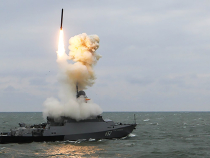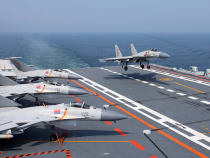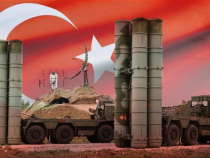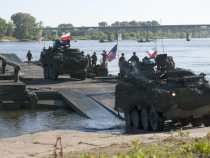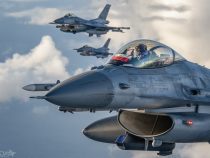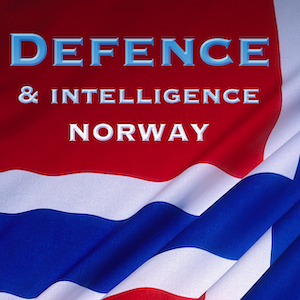A few days ago, Foreign Policy published an article: “Russia’s War is Also a Cognitive War,” which states that the Kremlin’s modern aggression goes far beyond the traditional battlefield, with Russia systematically waging a war for minds, influencing the thinking, decisions, and actions of both enemies and allies. This cognitive war is not limited to disinformation or propaganda; it permeates the media, diplomacy, the expert community, international conferences, and “peacemaking initiatives.” Its goal is not only to demoralize Ukraine, but also to weaken the West’s political will to act: to force it to doubt, postpone decisions, and seek compromises on the Kremlin’s terms. Against the backdrop of the protracted war in Ukraine, growing information noise, fatigue in Western society, and political debates about the limits of assistance to Kyiv, the Kremlin has activated new forms of influence that operate not at the level of facts, but of thinking, emotions, and decisions. Russia is increasingly not only attacking physically, but also trying to make the enemy stop, hesitate, and lose the will to act. In these conditions, Western leaders are faced with an unobvious but dangerous threat: instead of direct threats or blackmail, Moscow offers “reasonable compromises,” relays messages about the “need for negotiations,” and uses international platforms, diplomacy, media, and loyal experts for soft but systemic influence. It is in this environment that cognitive warfare becomes a key tool with which Russia is trying not only to preserve Putin’s regime but also to redirect the course of the global confrontation in its favor without firing a single shot.
Cognitive warfare is a new type of conflict in which the main goal is to influence the thinking, beliefs, decisions, and actions of the enemy, forcing him to act in a way that is beneficial to the aggressor. Cognitive warfare shapes the very foundations of the perception of the world, changing the logic by which people make decisions. Russia uses this strategy to achieve goals that are unattainable through military force alone, and with minimal cost. Modern Russian cognitive warfare grew out of the Soviet concept of “active measures” — a complex system of disinformation, subversion, propaganda, and psychological influence that the KGB used around the world. Today, these methods have become even more powerful thanks to digital technologies, social networks, and the instantaneous dissemination of information. The Kremlin has integrated classic psychological warfare techniques with cyber operations, information attacks, and manipulation of the media and even international organizations. The key concept of Russian cognitive warfare is “reflexive control.” This is a Soviet theory according to which a certain picture of the world is imposed on the enemy, and then he independently reaches the conclusions necessary for the Kremlin. Instead of direct pressure, it is information manipulation that forces the enemy to act ostensibly in his own interests, but in reality beneficial to Russia. This is exactly how the Kremlin acted in the run-up to the annexation of Crimea, inflaming the conflict in the Donbass region, and in interfering in elections in other countries.
Russia is waging cognitive warfare, aimed at changing the thinking, behavior, and decisions of its adversary, with the goal not of physically destroying the enemy, but of making him surrender on his own, losing the will to act. The Kremlin is using this tool against Ukraine, the West, and even its own population. This strategy, which includes fake news, context manipulation, destructive narratives, the simulation of “rational” decisions, as well as intimidation, apathy, and the distortion of reality. Russia’s cognitive warfare is a way to force other states to pause, doubt, or act to the detriment of its own interests. Russia’s cognitive warfare against the West began even before Putin came to power; in fact, it has been going on for decades. Demonstrating its conventional power, nuclear weapons, navy, and missile systems is a tactic that Soviet authorities often used in their strategic messaging against the West. Since 2000, the Kremlin has been implementing new forms of information control. By 2003, Putin had established full state control over all Russian media. The Kremlin intensified its external efforts in cognitive warfare after a series of largely peaceful protests against corrupt regimes in former Soviet republics, including the 2003 Rose Revolution in Georgia and the 2004 Orange Revolution in Ukraine. The desire of Russia’s neighbors for a more transparent, Western-style governance threatened Moscow’s goal of controlling these states, and Putin perceived these developments as a threat to his regime. For years, he has stressed that the Kremlin “must do everything necessary to ensure that nothing like this ever happens in Russia,” and the Kremlin has launched a series of information operations to stop and restore Russia’s lost influence in Ukraine and other former Soviet republics. The Russian Federation began spreading narratives of separatism in Ukraine as early as 2004. A decade later, in 2014, these narratives were used as the basis for Russia’s hybrid operation aimed at seizing eastern and southern regions of Ukraine, and later – for a full-scale invasion in 2022. The information background created by the Kremlin in 2022-23 to escalate tensions influenced the West’s decision to provide weak military assistance to Ukraine, which led to a loss of opportunities for Ukraine and a battlefield advantage for Russia.
China, Iran and North Korea also use cognitive operations to destabilize Western countries, manipulate public opinion and advance their own agenda. However, it is Russia that is “most skilled” in this area due to many years of experience. The Kremlin works especially effectively on the European information front: through pro-Russian parties and networks of influence on social networks and covert financing of foreign media. That is why the fight against Russia’s cognitive aggression requires not only fact-checking, but also a deep analysis of the channels of influence and coordination between democratic states.
The key strategy of Russia’s cognitive war is not to achieve a specific military victory, but to demoralize the will of the enemy, and this applies to both the Western policy towards Ukraine and the internal decisions of individual countries. Russia uses cognitive war not only externally, but also internally to preserve the Putin regime in order to hide its own weaknesses: economic problems, technological backwardness or internal destabilization, and its use inside the country is often more effective than repression or propaganda. Against the backdrop of military actions against Ukraine, the West often underestimates other, invisible forms of aggression, but cognitive war is a full-fledged front that requires protecting the information space, resistance to psychological pressure and building institutional responsibility.
The ultimate goal of Russia’s cognitive war is that in order to achieve more, the Russian Federation needs others to do less. Russia could very easily lose if the West supports Ukraine. The combined economies of NATO, non-NATO European Union states, and the US’s Asian allies, among others, far outstrip Russia’s. Moscow’s goal was therefore to force the United States to conclude that a Russian victory in Ukraine was inevitable, or even in US interests, and that Washington should stay out of the picture. Russia would have a better chance of subduing Ukraine if the Kremlin could convince the world that a Russian victory was inevitable and that further Western aid to Ukraine was futile, and that Russia simply deserved its sphere of influence. Despite its effectiveness, Russia’s cognitive warfare has its limits. Moscow is vulnerable to realities that undermine the narrative of a powerful Russia and a powerful Putin—one of Russia’s major untapped weaknesses. Operations often yield only partial results, sometimes fail or even backfire on the Kremlin. The West is gradually learning to recognize and counter manipulation, developing information security strategies, and strengthening cyber defenses. The Kremlin’s very dependence on cognitive warfare makes it vulnerable: if Western societies reject Russian narratives, the strategy loses its meaning. It is important not to play by the Kremlin’s rules, not only to refute fakes, but also to understand what narratives the Kremlin is trying to impose, and not to accept them as the basis for decision-making. The West’s best bet is to neutralize Russian, as well as Iranian, North Korean, and Chinese, efforts at cognitive warfare by exposing them, working to reject the false premises they are trying to create, and focusing on the real world rather than operating in the artificial reality that the axis of evil is trying to create.
---
Oleksandr Levchenko is a diplomat and geopolitical expert with extensive experience in Ukraine’s foreign service. He served as Ambassador of Ukraine to Croatia and Bosnia and Herzegovina from 2010 to 2017, and earlier as Consul of Ukraine to the Federal Republic of Yugoslavia between 1993 and 1997. He is a professor at the State Tax Academy and a member of the Academy of Geopolitics and Geostrategy in Kyiv.
For over three and a half years, Ambassador Levchenko has been consistently writing about the consequences of the Russian-Ukrainian war in the international context, publishing articles on various platforms in Ukraine, Bosnia and Herzegovina, Lithuania, Croatia, Montenegro, North Macedonia, Bulgaria, and occasionally in Serbia. His analyses focus in particular on the geopolitical, strategic, and security dimensions of the conflict, offering valuable insights for regional and European audiences.
DefenseRomania App
Fii primul care află cele mai importante știri din domeniu cu aplicația DefenseRomania. Downloadează aplicația DefenseRomania de pe telefonul tău Android (Magazin Play) sau iOS (App Store) și ești la un click distanță de noi în permanență
Fiți la curent cu ultimele noutăți. Urmăriți DefenseRomania și pe Google News









